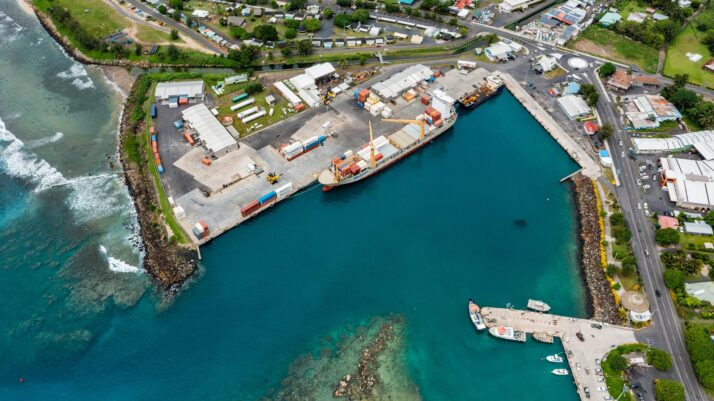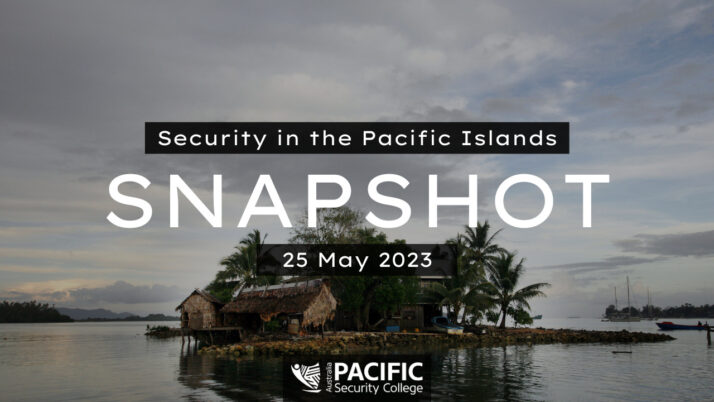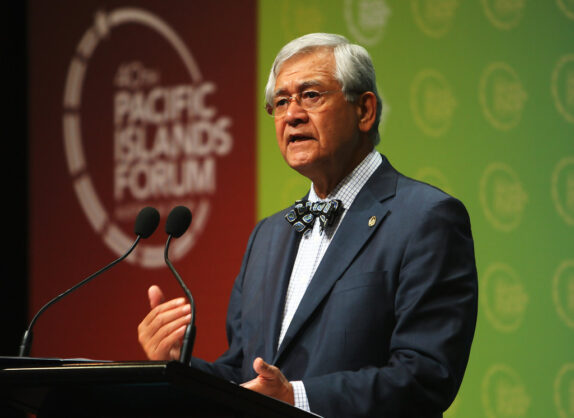Voices of Pacific leaders: COVID-19 and the path to recovery
Photo by Zimbio
Meg Keen
Pacific Security College (PSC) Director Meg Keen reports on security concerns arising from discussions with some of the regional leaders of the Pacific and the Australian Minister for International Development and the Pacific, the Hon Alex Hawke.
Pacific islands people are not only responding to the crisis of COVID-19, they are reflecting critically on the implications for the future security of the region. The Pacific Security College (PSC) is privileged to be at the intersection of a number of these conversations.
On Friday 12 June 2020, the PSC Board of Pacific leaders sat down with Australia’s Minister for the Pacific, the Hon Alex Hawke, to reflect on COVID-19 and the path to recovery. The following text has been agreed by all board members.
Former Pacific Island Forum Secretary-General, Tuiloma Neroni Slade, set the tone with his observation that “disasters expose system weaknesses … but also the strength of regional leadership and response”.
In all crises, you lose, and you gain. What has been gained is strengthened local systems for disaster response, and greater use of digital communications — we need to keep building on the gains as we recover from the losses. The vast spaces and costs of connectivity in the Blue Pacific can be reduced with digital communications, the people brought closer together, and regional responses better coordinated.
As noted by the Hon Alex Hawke, what is ahead for the region and the world could be a lot tougher as the economic challenges add to health woes. In the Pacific, the economic strains will hit GDP hard — currently the IMF projects declines of about 12 per cent in Palau and 6 per cent in Fiji. Fiji LTCDR Silipa Tagicaki reflected the concerns of many in the region at the loss of tourism income. In countries such as Cook Islands tourism accounts for 87 per cent of GDP, in Vanuatu 40 per cent — currently there is no tourism and recovery rates are uncertain. These impacts reverberate well beyond hotels and restaurants.
Less well accounted for is the impact on subsistent (and for many invisible) informal economies, settlements and social systems where most lives and livelihoods take place, accounting for as much as 85 per cent of employment in states like Solomon Islands. Concern is widespread with similar sentiments expressed by Pacific Islands Forum Secretary-General, Dame Meg Taylor — even so, strategies to support this sector are scarce on the ground and not well coordinated.
Rhea Moss-Christian, Chair of the Marshall Islands Nuclear Commission, voiced her concern about food security; a view shared by other Board members and across the region. Areas affected by COVID-19 and Tropical Cyclone Harold face double jeopardy.
Many have returned to villages and are increasing demand on agricultural and fisheries resources, which were already under strain from the changing climate and increasing population. Food supply chains have been disrupted affecting livelihoods, product flows to villages, from villages to urban markets, and food imports. Food prices have risen and could rise further. Without access to affordable and nutritious food, the short-term and long-term human costs of the crisis and social tensions could increase. Food production and distribution systems need more attention to cushion the impacts of the crisis.
Crises can divert attention away from already existing pressures which if neglected multiply harm. There is a risk that with attention focused on health and the economy, other social pressure points will slip off the agenda.
New Zealand diplomat and former senior police officer Ross Ardern emphasised that youth are directly and indirectly affected by this crisis, and were already in difficult times with youth underemployment (at least 23 per cent) about double that of the general Pacific population. Youth education has been disrupted, tight finances may affect returning to school, and jobs will remain scarce. Youth are the future, a recovery program that neglects them will do so to the long-term detriment of society.
Prior to COVID-19, many countries of the Pacific had some of the most rapid urbanisation rates in the world. The result was overflowing informal settlements, inadequate water and sanitation systems, and economies that do not generate enough jobs or revenues to support the cities and their people. The economic downturn that will inevitably follow the coronavirus crisis will magnify these fragilities when many return to the cities but economies remain sluggish. It is estimated that recovery from a Category 5 Cyclone can take over 10 years. How long will recovery from COVID-19 take? How can regional interventions help?
As the Deputy Director of the Pacific Community, Audrey Aumua, observed, there is a need for “constancy in regionalism” where surges in effort are maintained, previously agreed priorities remain, and actions are strongly linked to national and community responses and priorities. The Pacific Humanitarian Pathway/Corridor is greatly appreciated.
Investments in recovery need to be strategic and long term: infrastructure for greater connectivity, green energy production, and services that stimulate economic and social development. Former PNG Prime Minister Sir Rabbie Namaliu saw the opportunities for a new level of institution building to support crisis preparedness and response while advancing sustainable development goals.
Coordinated action across sectors, jurisdictions and time is key to a more resilient future. The National Security Strategies being developed by many Forum Island countries in response to the Boe Declaration on Regional Security provide a policy umbrella that will put Pacific island countries in the driver seat of defining security priorities and how they are addressed.
The Boe Declaration expanded security agenda, inclusive of climate, human, resource and traditional security, was a prescient recognition by leaders that security was multi-faceted and a more systemic, rather than siloed, approach was needed. Notably, the two that have been finalised prior to the coronavirus crisis — Samoa and Vanuatu — gave health security and strengthened health systems a high priority but recognised that stronger health security requires better performance across many sectors.
Fiji LTCDR Silipa Tagicaki argued that recovery must be about empowerment, and empowerment requires the building of capacity to organise and act as sovereign nations. It is not only about what you can give, but the abilities you can nurture. Recovery is about quality education; enabling and diversifying livelihoods; and strengthening existing institutions and national connectivity. There needs to be in-country reflection to learn from locally-driven TC Harold and COVID-19 responses and the partnerships that worked on the ground. What allowed nations to respond effectively, and how can partnerships further support those trajectories?
One regional initiative that will demand close cooperation and partnerships is the much-discussed trans-Pacific travel bubble. All could see the economic benefits but were acutely aware of the risks. While some economic leaders are pushing for an early start, Pacific communities at home were divided; there is still much work to be done to convince many that opening the borders is safe.
The bubble could burst badly without strong regional partnerships to ensure rigorous monitoring, detection and response to any new cases of COVID-19. These arrangements are not yet in place, but can be developed with a bit more time, and incremental and careful trialing of systems. Transparency and accountability around regional commitments to safeguard human health and security should be explicit and enduring.
COVID-19 won’t be the last public emergency to face the Pacific islands, so recovery needs to do more than build back – it needs stronger governance and social systems. Recovery pathways must deliver on sustainable development goals, including health systems strengthening beyond pandemic preparedness — non-communicable diseases are still the bigger killer in the Pacific. And in our response to COVID-19, let’s not neglect the people that fall outside of formal economic accounts, our youth, and the integrity of sovereign and democratic systems.
Success will depend on partnerships and our commitment to sustain them now, and into the future.
Read more blogs by Meg Keen here.
More Stories

Blog - 25 Oct 2023
Australia must play a key role in the Pacific’s push to decarbonise shipping
There is an opportunity for Australia to work with Pacific islands to invest in new technology and take a leadership role in the decarbonisation of shipping in the region. Pacific leaders have stated their priority to transition to a fossil fuel free Pacific. Collectively they recently failed at getting the International Maritime Organisation (IMO) to…

Security Snapshot - 26 May 2023
Pacific Security Snapshot | 25 May 2023
The security stories shaping the region ➣ Papua New Guinea and the United States sign Defence Cooperation Agreement ➣ United States-Pacific Islands Forum Dialogue held in Port Moresby ➣ Pacific leaders meet Indian Prime Minister Narendra Modi ➣ Pacific call for climate finance breakthrough at UN session ➣ Tuvalu strengthens efforts against illegal, unreported and…







